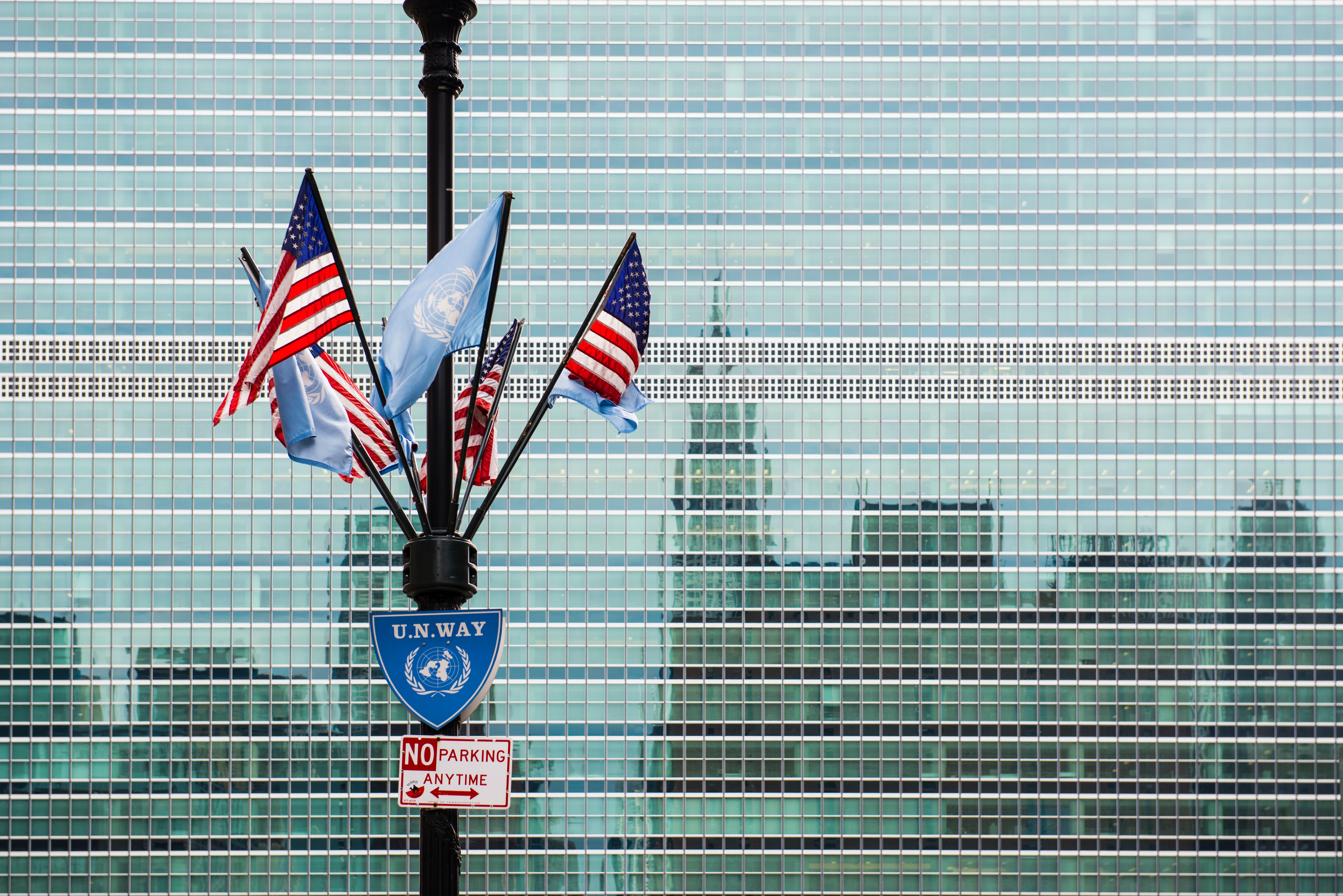Through the looking glass: Coloniality and mirroring in localisation
DOI :
https://doi.org/10.21153/thl2022art1693Mots-clés :
localisation, colonialisation, North KoreaRésumé
What assumptions underpin the concept of ‘localisation’ as employed by the mainstream, international humanitarian sector? This paper offers a partial answer to this multi-faceted question. It first considers the meaning(s), or lack thereof, of localisation. It presents coloniality and ‘mirroring’ as two concepts important to understanding the limitations of localisation. It then considers locally led aid in the Democratic People’s Republic of Korea (DPRK, or North Korea), using the example of the Eugene Bell Foundation (EBF). The paper argues that assumptions around the actors involved in local response, as well as assumptions around the existence of NGOs and the normative belief that non-state actors could and should play major roles in response, demonstrate the limits of localisation.
Métriques
Téléchargements
Références
Adeso. (2020). Adeso and IFFP Webinar Series Part 1—Decolonising Aid (Part I): Humanitarian ‘neutrality’ and ‘White Supremacy’ [YouTube video]. https://www.youtube.com/watch?v=xB7CHGhBKyc
Al-Abdeh, M., and Patel, C. (2019). ‘Localising’ humanitarian action: reflections on delivering women’s rights-based and feminist services in an ongoing crisis. Gender & Development, 27(2), 237-252.
Associated Press. (2001, 16 May). N. Korea Discloses Famine’s Heavy Toll. Los Angeles Times. https://www.latimes.com/archives/la-xpm-2001-may-16-mn-64171-story.html.
Ayobi, Y., Black, A., Kenni, L., Nakabea, R., and Sutton, K. (2017). Achieving a more appropriate and fit-for-purpose humanitarian ecosystem in the Pacific [Report by Centre for Humanitarian Leadership, Humanitarian Advisory Group, and Fiji National University, commissioned by Australian Red Cross]. Australian Red Cross. https://humanitarianadvisorygroup.org/wp-content/uploads/2020/12/ARC-Localisation-report-Electronic-301017.pdf.
Baguios, A. (2020, 4 July). Aid may be inherently racist and colonial, but altruism is not—that’s a cause for hope. Aid-Reimagined.https://medium.com/aidreimagined/aid-may-be-inherently-racist-and-colonial-but-altruism-is-not-thats-a-cause-for-hope-c77e7a33b899.
Baguios, A. (2021, 17 December). Localisation Re-imagined: Fertilising the soil of state-led solutions. ALNAP. https://www.alnap.org/localisation-re-imagined-fertilising-the-soil-of-state-led-solutions.
Baguios, A., King, M., Martins, A., and Pinnington, R. (2021). Are we there yet? Localisation as the journey towards locally led practice: models, approaches and challenges. Overseas Development Institute. https://cdn.odi.org/media/documents/ODI-SH-Localisation-Report-Oct21-Proof06.pdf.
Banfill, J., Barrett, J., Vitantonio, C., and Zadeh-Cummings, N. (2021). Opening Doors in the DPRK. The Humanitarian Leader. https://doi.org/10.21153/thl2021volno0art1314.
Clarke, M., and Parris, B. W. (2019). Vale the Humanitarian Principles: New Principles for a New Environment. The Humanitarian Leader. https://doi.org/10.21153/thl2019volno0art1032.
DuBois, M. (2018). The new humanitarian basics [Humanitarian Policy Group Working Paper]. Overseas Development Institute. https://cdn.odi.org/media/documents/12201.pdf.
Eugene Bell Foundation. (n.d.). Approach. Retrieved 7 October 2022 from https://www.eugene-bell.org/our-work/approach/.
Eugene Bell Foundation. (2009). Eugene Bell Foundation Annual Report 2009. https://issuu.com/eugenebell/docs/2009_eugene_bell_foundation_annual__282d251bd4f079.
Goodkind, D., and West, L. (2001). The North Korean Famine and Its Demographic Impact. Population and Development Review, 27(2), 219-238.
Hastings, J. V., Wertz, D., and Yeo, A. (2021). Market Activities & the Building Blocks of Civil Society in North Korea. National Committee on North Korea. https://www.ncnk.org/resources/briefing-papers/all-briefing-papers/special-report-market-activities-building-blocks-civil.
Hilhorst, D. (2018). Classical humanitarianism and resilience humanitarianism: making sense of two brands of humanitarian action. Journal of International Humanitarian Action, 3(15).
Jayawickrama, J. (2018). “If You Want to Go Fast, Go Alone. If You Want to Go Far, Go Together”: Outsiders Learning from Insiders in a Humanitarian Context. Interdisciplinary Journal of Partnership Studies, 5(2).
Kelly, M., Pardy, M., and McGlasson, M. A. (2021). Listening and Localisation. Centre for Humanitarian Leadership. https://centreforhumanitarianleadership.org/wp-content/uploads/2022/01/Listening-and-Localisation.pdf
Khan, T. (2021, 31 March). When Defensive Becomes Offensive. La Mehdood. https://lamehdood.wordpress.com/2021/03/31/when-defensive-becomes-offensive/.
Korean Federation for the Protection of the Disabled. (n.d.). Background, Mission and Task. Retrieved 10 October 2022 from http://naenara.com.kp/sites/kfpd/index.php?lang=e&page=About.
Metcalf-Hough, V., Fenton, W., Saez, P., and Spencer, A. (2022). The Grand Bargain in 2021: an independent review. Overseas Development Institute. https://odi.org/en/publications/the-grand-bargain-in-2021-an-independent-review/.
Ndlovu-Gatsheni, S. J. (2015). Decoloniality as the Future of Africa. History Compass, 13 (10), 485-496.
Noland, M. (2022). North Korean Food Insecurity: Is Famine on the Horizon? [Asia Pacific Issues paper no. 154]. East-West Center.
Peace Direct. (2021). It’s Time to Decolonise Aid: Insights and lessons from a global consultation. https://www.peacedirect.org/wp-content/uploads/2021/05/PD-Decolonising-Aid_Second-Edition.pdf.
Robillard, S., Atim, T., and Maxwell, D. (2021). Localization: A “Landscape” Report. Feinstein International Center. https://fic.tufts.edu/publication-item/localization-a-landscape-report/.
Roche, C., and Tarpey, F. (2020, 23 March). COVID-19, localisation and locally led development: A critical juncture. Dev Policy Blog. https://devpolicy.org/covid-19-localisation-and-locally-led-development-a-critical-juncture-20200323/.
Roepstorff, K. (2020). A call for critical reflection on the localisation agenda in humanitarian action. Third World Quarterly, 41(2), 284-301.
Rosenthal, E. (1998, 10 December). In North Korean Hunger, Legacy is Stunted Children. New York Times. https://www.nytimes.com/1998/12/10/world/in-north-korean-hunger-legacy-is-stunted-children.html.
Rutazibwa, O. U. (2019). What’s There to Mourn? Decolonial Reflection on (the End of) Liberal Humanitarianism. Journal of Humanitarian Affairs, 1(1), 65-67.
Teets, J. C. (2013). Let Many Civil Societies Bloom: The Rise of Consultative Authoritarianism in China. The China Quarterly, 213, 19-38.
Tipper, J. (2018, 9 April). Why ‘localisation’ shines a spotlight on ignorance—and what NGOs can do to counter it. ALNAP. https://www.alnap.org/blogs/why-%E2%80%98localisation%E2%80%99-shines-a-spotlight-on-ignorance-%E2%80%93-and-what-ngos-can-do-to-counter-it.
United Nations General Assembly. (2016). One Humanity: Shared Responsibility—Report of the Secretary General for the World Humanitarian Summit (A/70/709). https://reliefweb.int/report/world/one-humanity-shared-responsibility-report-secretary-general-world-humanitarian-summit.
Zadeh-Cummings, N., and Harris. L. (2020). Impact of Sanctions against North Korea on Humanitarian Aid. Journal of Humanitarian Affairs, 2(1), 44-52.







